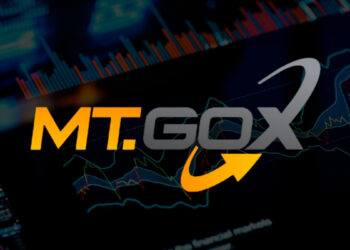Australia has launched a task force to crack down on cryptocurrency ATM operators failing to adhere to the country’s anti-money laundering (AML) regulations, as announced by the Australian Transaction Reports and Analysis Centre (AUSTRAC) on December 6.
In its statement, AUSTRAC warned crypto ATM providers of stringent enforcement actions and penalties for non-compliance.
Australia ranks as the world’s third-largest hub for Bitcoin and crypto ATMs, with Coin ATM Radar reporting over 1,300 machines. However, the regulator estimates the number to be 1,200, with only a small portion managed by the country’s 400 registered digital currency exchanges.
AUSTRAC CEO Brendan Thomas explained the increasing risks associated with crypto ATMs, citing their appeal to criminals for facilitating “near-instant and irreversible transfers.” He emphasized the task force’s mission to curb high-risk, non-compliant operators throughout 2024 to prevent the misuse of cryptocurrency for illicit purposes.
“We’re seeing too many Australians falling victim to scams carried out through cryptocurrency. As the use of cryptocurrency increases, so too will criminal exploitation, which is why this taskforce will work to eliminate non-compliant high-risk operations,”
Thomas stated.
Crypto ATM operators in Australia must comply with stringent AML requirements, including registering with AUSTRAC, conducting KYC checks, monitoring transactions, and reporting suspicious or large cash transactions exceeding 10,000 AUD (approximately $6,430).
The move builds on AUSTRAC’s findings in its 2024 National Risk Assessment Report, which identified cryptocurrencies as a “high-risk” channel for money laundering and terrorism financing. The agency projects these risks to escalate over the next three years.
This crackdown on crypto ATMs comes as Australian regulators prepare to introduce stricter measures for the broader cryptocurrency industry. The Australian Securities and Investments Commission (ASIC) is reportedly drafting new legislation that will require cryptocurrency exchanges to secure financial services licenses. Alan Kirkland, an ASIC commissioner, revealed the plans during the AFR Crypto and Digital Assets Summit held in Sydney on September 23, 2024.
Kirkland emphasized that the changes are necessary as ASIC views most major cryptocurrencies, including Bitcoin (BTC) and Ether (ETH), as falling under the Corporations Act.
If you want to read more news articles like this, visit DeFi Planet and follow us on Twitter, LinkedIn, Facebook, Instagram, and CoinMarketCap Community.
“Take control of your crypto portfolio with MARKETS PRO, DeFi Planet’s suite of analytics tools.”





















